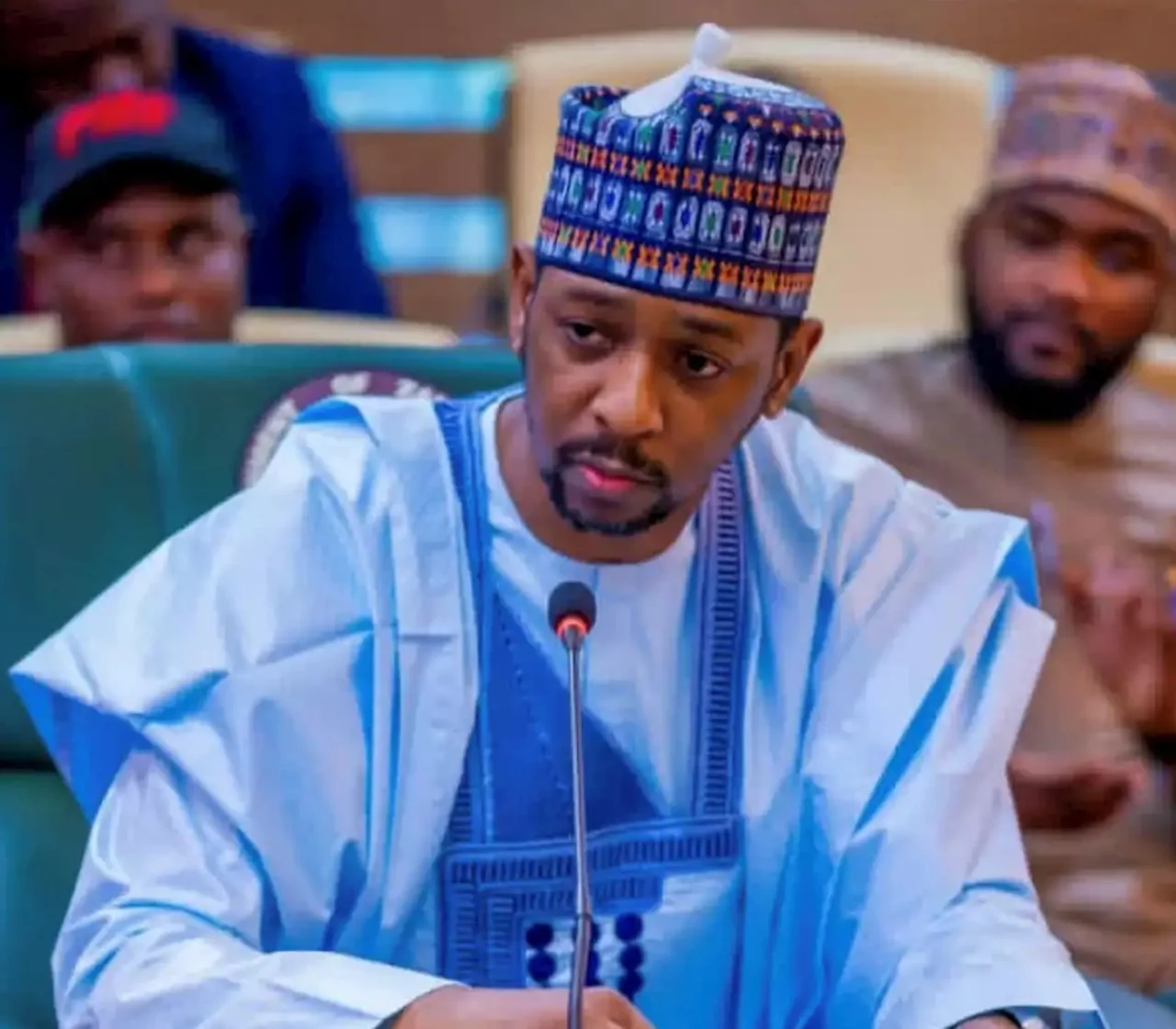The federal government has said the N30, 000 national minimum wage is binding on all employers of labour, including state governments and the private sector.
Minister of Labour and Employment, Senator Chris Ngige, made the clarification on Saturday in Abuja during the Workers Day celebrations. This followed agitations by labour over the non-implementation of the national minimum wage by some state governments.
Organised labour, under the aegis of its umbrella organisations, Nigeria Labour Congress (NLC) and Trade Union Congress (TUC), bemoaned the high rate of job loses and casualisation of workers in the country.
However, in many states, the governors used the May Day celebrations to extol the contribution of workers to governance.
Ngige, who represented President Muhammadu Buhari at the occasion, maintained that the minimum wage law signed by the president in 2019 was a national law that everyone must obey.
The minister stated, “Private sector and state governors are bound by the laws, because we have workers as prescribed in that law. So, it is not a question of pick and choose. We moved the national minimum wage from N18, 000 per month to N30,000. It is an irreducible plus. Therefore, we expect them and the people in the private sector to comply.”
Ngige also assured the workers that the federal government was against any attempt to remove the national minimum wage from the Exclusive List, adding that the issue of pension minimum wage is backed by the constitution, and every employer is bound by it. He assured that the federal government would pay all minimum wage arrears owed pensioners from 2019 to date, stating that, “All pensioners in the federal civil service are to get their arrears paid beginning from May 1, 2021.”
In his speech delivered at this year’s May Day celebration, Buhari said though the negative effects of the COVID-19 pandemic were monumental, the government had tried to cushion the effects of the disease without reducing incomes. It was able to do this by investing in the diversification of the economy in order to keep the country afloat, the president said.
Buhari listed some of policies being executed by his administration to create jobs and empower the populace.
According to the president, “While awaiting the formalisation of our social protection network and people’s welfare, we have not and will not rest on our oars in combating the challenges of our time occasioned by COVID-19 pandemic.
“We have in our place some social-economic policies to alleviate poverty and ours include but not limited to the expansion of the Conditional Cash Transfers for the vulnerable poor from 2.6 million households (13 million persons) to 7.6 million households (32 million) and COVID-19 Rapid Response Register for urban poor, which now has 4.8 million households (20 million).”
The president said the government, through the Federal Ministry of Trade and Investment, was implementing the Entrepreneur Support Programme, Artisanal Support Fund, and Payroll Support Fund for small-scale businesses.
Other economic empowerment schemes, which the federal government is currently implementing, according to Buhari, include the Guaranteed Off-take Stimulus Scheme for small and medium enterprises (SMEs), which targets producers of hygienic products and packaged food to encourage entrepreneurship and industries. There is also the National Youth Investment Fund (NYIF) for young entrepreneurs for which N75 billion is earmarked for three years.
The president also said the federal government intended to expand the N-Power programme, from the present 500,000 persons to one million.
Responding to the concerns of labour on casualisation, Ngige said the federal government identified with the organised labour in efforts to end the practice.
In a message jointly signed by president of NLC, Ayuba Wabba, and president of TUC, Quadiri Olaleye, the leadership of organised labour lamented the poor conditions Nigerian workers had been subjected to. They alleged countless serious violations of human, workers, workplace and trade union rights all over Nigeria in the last one year.
NLC and TUC said the situation was compounded by the health and socio-economic effect of the COVID-19 pandemic, which led to lose of millions of jobs and subsequently pushed about 27 million Nigerians into poverty.
Wabba, who read part of the speech, said this year’s May Day was dedicated to brave women and men, who paid the supreme price in the performance of their jobs, contracted the coronavirus, and suffered life-lasting complications as a result.
“We must say that our country has not made the desired progress in protecting workers and the Nigerian people from the impact of COVID-19, which has brought with it daunting challenges for Decent Work, Social Inclusion cum Protection and Distress on peoples’ welfare,” he stated.
Wabba added, “Despite the best efforts of government, organised labour, and private sector employers, millions of Nigerian workers have lost their jobs, their means of livelihood and have slipped into destitution, lack and misery. The weakness of our social protection system has aggravated the pain and frustration of our compatriots.”
Olaleye said labour was proffering alternative policy options to government to consider in order to save the country from the current difficult situation. He said rather than help businesses to grow, agencies of government had been stifling the small-scale businesses (SMEs) through multiple taxation, leaving the economy and Nigerians strangulated and impoverished.
The TUC president said government should see the need for expansionist policies to restore the essential role of the state in the protection of essential public goods, notably health, education, jobs, and sound management of the petroleum and power sectors.
On the removal of petrol subsidy, Olaleye said organised labour was pushing for production cost and pricing method as against the existing import-parity model, which had bled Nigeria of humungous forex.
He suggested that government should implement a three-year suspension of increase in gas price to help stabilise the cost of electricity tariff in the country.
“With the savings made, the cost of the electricity tariff could be reduced by N10.50 across the high price bands,” he said.
Representative of the senate president, and Chairman, Senate Committee on Labour, Senator Godiya Akwashiki, said the National Assembly was always willing to partner the leadership of the workers in safeguarding the wellbeing of workers and ensuring industrial stability.
Secretary to the Government of the Federation, Boss Mustapha, commended Nigerian workers for standing with the federal government during the challenging period of the outbreak of COVID-19. He enjoined the workers not to relent in their support and adherence to the COVID19 protocols, as the country was yet to completely eradicate the scourge.
For more inquiry, You can visit our website at www.cdanewsonline.com
We promote your business and we have a space for advertisement.
We provide the best medium to reach out to the world.
Get more stories like on Facebook, Twitter
News Or Advert Contact Us by Email cdanews9@gnail.com., WhatsApp 234805410984 Facebook page CDA news.





